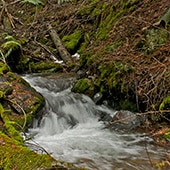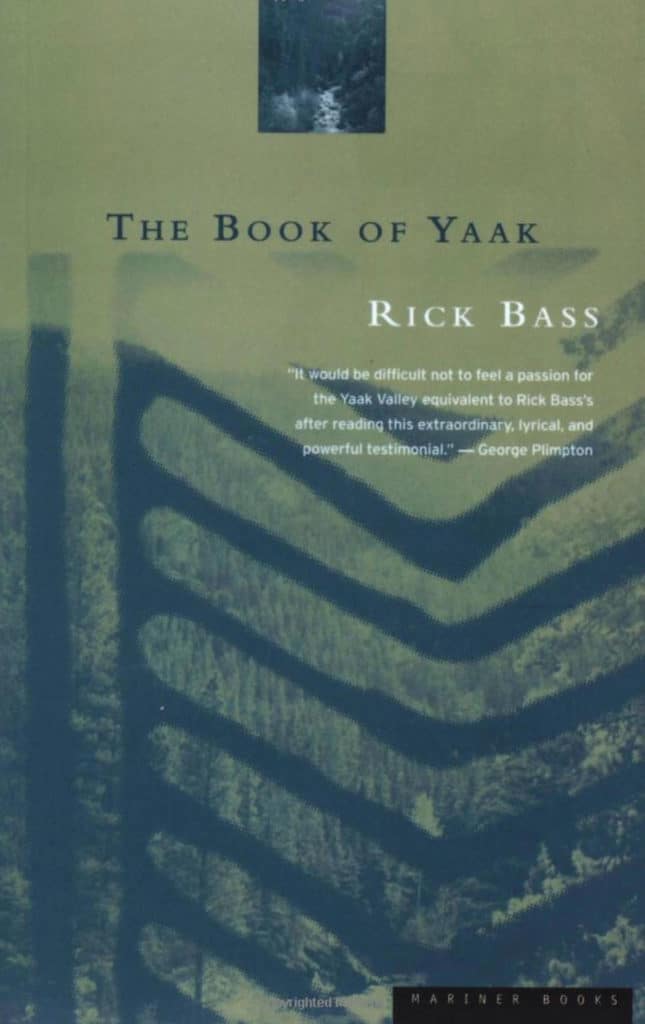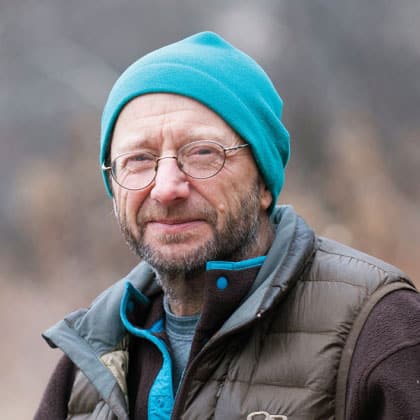The Book of Yaak: Fix Creek
The Yaak is a tiny river, but an important one, especially with the loss of the upper Kootenai River (and now extinct Ural Valley) to the wretched dam that formed Lake Koocanusa, in order to send more juice to California. The Yaak flows from four forks down into what remains of the Kootenai, a river that reminds one of the Mississippi. And the Kootenai then flows, Yaak-laden, into the Columbia, where it becomes fragmented by dams—lakes where salmon once ran wild.
It boggles my mind to stand in one of the cedar forests high in the mountains of Yaak and watch a creek—say, Fix Creek—go trickling down through the forest, a foot wide and a foot deep—and to picture it being received by the Yaak, and then by the Kootenai, and then by the Columbia, and then by the ocean. (129)
Rick Bass. The Book of Yaak. New York: Houghton Mifflin, 1996.



